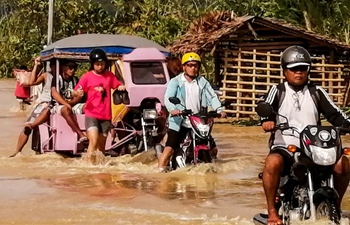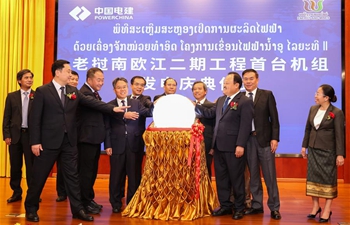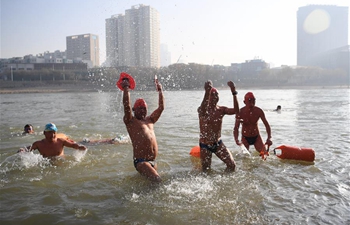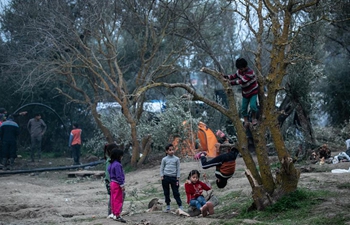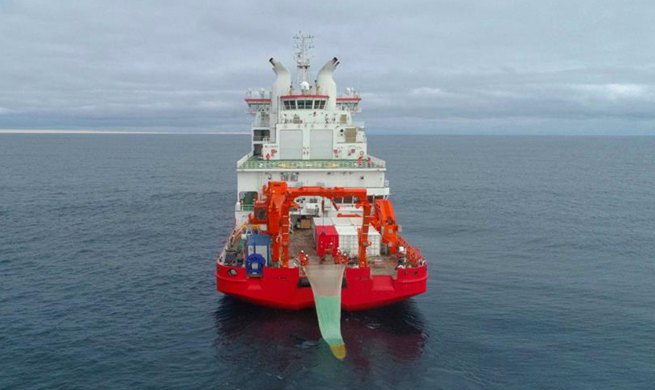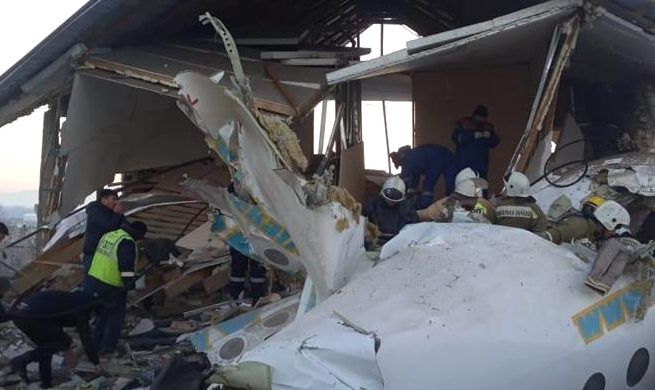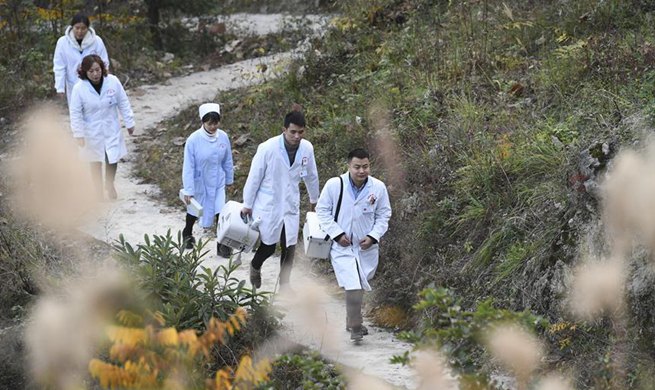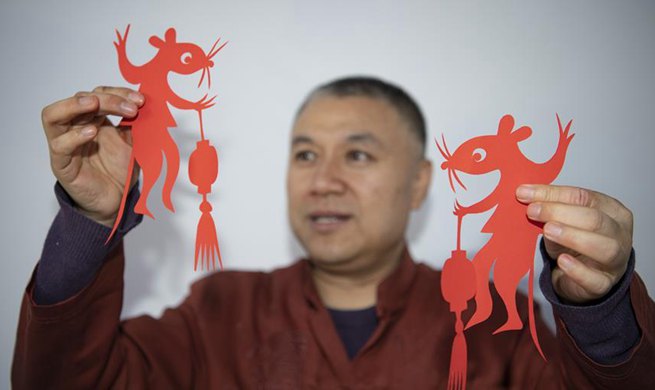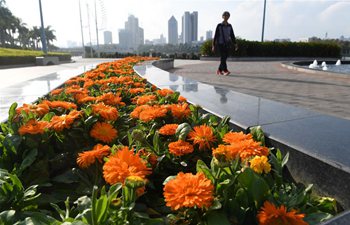CAIRO, Dec. 27 (Xinhua) -- Secretary General of the Arab League (AL) Ahmed Aboul Gheit has warned against the negative impacts and risks of foreign intervention in Libya.
In a statement released by the AL late on Thursday, Aboul Gheit voiced his concern over the serious escalation in the conflict-stricken country, reiterating his call for "immediate de-escalation."
He also urged all Libyan parties to engage in talks in order to end military operations and reach an agreement on cease-fire "to pave the road for political solution."
Aboul Gheit highlighted the pan-Arab body's rejection to all "forms of foreign interference in Libya's internal affairs," saying the AL will continue to exert efforts to settle the Libyan crisis.
The AL's statement came after Turkish President Recep Tayyip Erdogan said earlier that Turkey will send troops to Libya at the request of the UN-backed Libyan government as soon as next month.
Meanwhile, Egyptian President Abdel Fattah al-Sisi highlighted the importance of putting an end to the illegal intervention in Libyan affairs during phone calls with his U.S. counterpart Donald Trump and Italian Prime Minister Giuseppe Conte late on Thursday.
Egyptian and U.S. presidents agreed that they reject "foreign exploitation" in Libya.
Al-Sisi told Conte that Egypt has a fixed position that supports the stability and security in Libya and the activation of the will of the Libyan people.
The Egyptian president also expressed his country's support for "the efforts of the Libyan National Army (LNA) in fighting terrorism and obliterating terrorist organizations that pose a threat not only to Libya but also to regional security and the security of the Mediterranean region."
For his part, Conte underlined Italy's keenness on reaching a settlement of the current crisis in Libya and restoring stability in Libya as well as the strength and efficiency of its institutions.
Egypt is concerned about its 1,200-km western border with Libya where militants and the smuggling of arms have been active since 2011.
Al-Sisi and German Chancellor Angela Merkel also discussed last week means of combating terrorism and extremist militias that threaten not only Libya but the entire Middle East and Mediterranean region.
On Sunday, Egyptian Foreign Minister Sameh Shoukry and his Greek counterpart Nikos Dendias discussed in Cairo the importance of exerting efforts to restore stability and security in the war-torn country.
On Tuesday, Shoukry and Russian Foreign Minister Sergey Lavrov agreed on the importance of averting aggravation of the situation in Libya as the region has continued to see tensions since the controversial Turkish-Libya maritime border and security agreement.
The maritime deal could give Turkey access to a contested economic zone across the eastern Mediterranean Sea, igniting more tensions between Turkey on one hand and Egypt, Cyprus and Greece on the other hand.
Since the ouster and killing of the former leader Muammar Gaddafi in 2011, Libya has been locked in a civil war that escalated in 2014, splitting power between two rival governments: the UN-backed Government of National Accord (GNA) based in the capital Tripoli and a government in the northeastern city of Tobruk which is allied with the self-proclaimed LNA led by Khalifa Haftar.
Egypt, the United Arab Emirates, France and Russia support Haftar's LNA, while the GNA is backed by Italy and Egypt's regional rivals Turkey and Qatar.
Haftar has been leading a military campaign since early April in and around Tripoli, attempting to take over the city and topple the UN-backed government.




